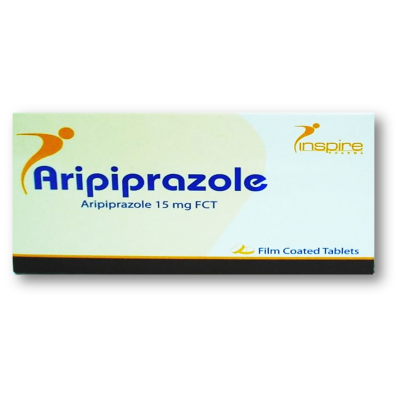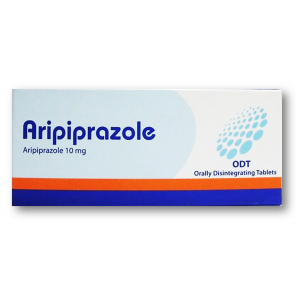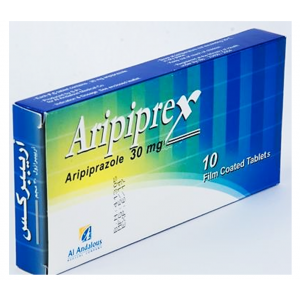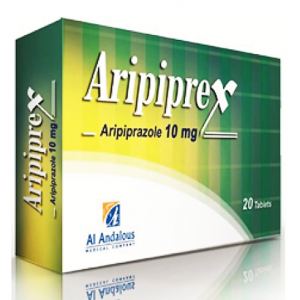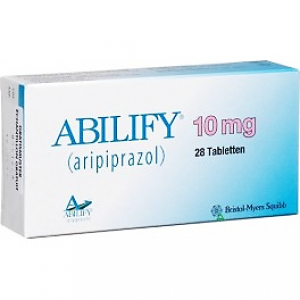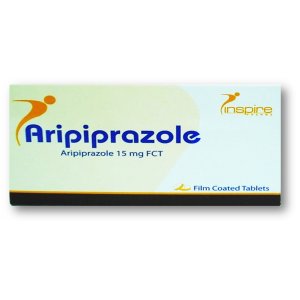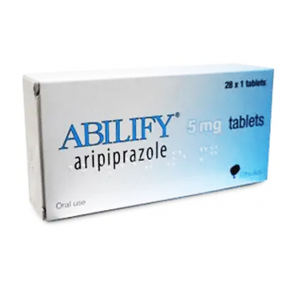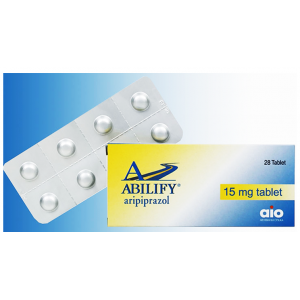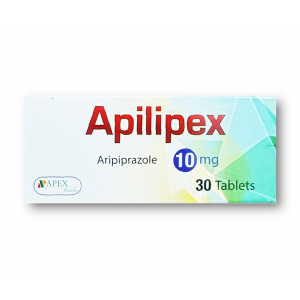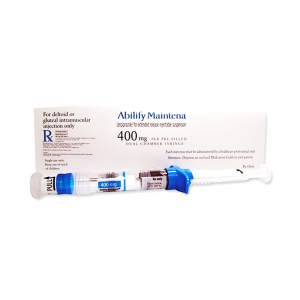- Anti-hestaminic & Respiratory Drugs (21)
- Anti-inflammatory Drugs (181) +-
- Baby & Mom (1314) +-
- Baby & Mom > Bath, skin & Hair > Skin Care > wibes (53)
- Beauty (2723) +-
- Beauty > Skin Care > whitening (273)
- Chemotherapy & Immune Response (659) +-
- Chemotherapy & Immune Response > ANTI-FUNGAL (6)
- Chemotherapy & Immune Response > Chemotherapeutic Agents > Hormone Antagonists >Enzyme Inhibitors (235)
- CIRCULATORY DISTURBANCE AGENTS (23)
- Diet & Fitness Products (248) +-
- DRUG AFFECTING CENTRAL NERVOUS SYSTEM (183)
- Drugs affecting CNS >Anti- epileptic (78)
- HEMATOLOGY (12)
-
Medical Supplies (468)
+-
- Chemicals & Disinfectants (19)
- Dental Supplies (27)
- Devices & Instruments (8)
- Diabetic Supplies (107)
- General Medical Supplies (21)
- I.V & Medical Solution (0)
- Intensive Care Unit & Anesthesia Supplies (0)
- Kindney Unit Supplies (12)
- Lab Supplies (1)
- Miscellaneous (21)
- Neonatal Unit Supplies (0)
- Operation Room Supplies (2)
- Sanitary (5)
- Sterilization Supplies (0)
- Surgical Sutures (4)
- Syringes (3)
-
Medicines & Health (2535)
+-
- Allergy & Sinus (93)
- Children's Health Care (52)
- Cough, Cold & Flu (297)
- Digestive Health & Nausea (218)
- Ear, Nose & Throat Care (174)
- Eye Care (117)
- Feminine Care (315)
- Foot Care (4)
- Orthopaedic Appliances (0)
- Pain Relief & Management (227)
- Pill Organizer (2)
- Skin Treatments (734)
- Sleep & Snoring Aids (0)
- Support & Braces (6)
- Medicines & health > Gout releif (42)
- Natural & Organic Products (82) +-
- OTC > Analgesics > Anti-inflammatory Drugs (43)
-
Personal Care (3044)
+-
- Bath & Body (256)
- Deodorant & Anti-perspirants (179)
- Ear, Nose & Throat Care (169)
- Eye Care (123)
- Feminine Care (362)
- Foot Care (12)
- Hair Care (388)
- Home Tests & Monitorings (14)
- Incontinence (7)
- Lip Care (20)
- Massage & Relaxation (18)
- Natural & Organic Personal Care (7)
- Oral Care (81)
- Pregnancy & Fertility (60)
- Shaving & Grooming (67)
- Sun Care (67)
- Prescribtion drugs > cardiovascular system > Hypertention drugs (334) +-
-
Prescription Drugs (2988)
+-
- Analgesics (180)
- Cardiovascular System (347)
- Drugs Affecting Musculoskeletal System (62)
- Drugs Used In Infections (53)
- Ear & Nose Drugs (2)
- Endocrine System (157)
- Gastrointestinal Tract (232)
- Gastrointestinal Tract (214)
- GYNECOLOGY (2)
- Miscellaneous (6)
- NEPHROLOGY > URINARY SYSTEM > RENAL DISORDERS > URINARY TRACT DISORDERS (24)
- NEUROLOGY (210)
- Nutrients & Blood Electrolytes (2)
- prescription drugs > cardiovascular system >Anti-hypertensive drugs (78)
- Prescription Drugs > Gastrointestinal Tract > Hepatology > Liver treatment (57)
- Respiratory System (137)
- SKIN > NAILS > HAIR > TOPICAL PREPARATIONS (42)
- Vaccines (1)
- Sexual Wellness (258) +-
- strong anti-emetic & adjuvent used with anti-neoplastic (0)
- Vitamins & Minerals Supplements (1134) +-
Ex Tax: 117EGP
Example
You can return the product within 14 days of purchase.
ReturnsYou can return the product within 14 days of purchase.

Aripiprazole 15 mg ( Aripiprazole ) 20 film-coated tablets
Why it's used
Aripiprazole is a prescription medicine that is used to treat schizophrenia, irritability associated with a serious developmental disorder, illness of the brain and moderate to severe manic episodes in bipolar I disorder. This medicine works by altering the activity of certain natural chemicals in the brain. Aripiprazole is also used for the acute treatment of manic and mixed episodes associated with bipolar I disorder in adults, for the adjunctive treatment of major depressive disorder, to treat agitation associated with schizophrenia or bipolar mania (for injection), and to prevent new manic episode in adults who previously experienced manic episodes.
Aripiprazole may also be used along with other medicines in the treatment of certain conditions as recommended by the doctor. It is used with antidepressants to treat major depressive disorder. It is also used together with Lithium, or Valproate to treat bipolar mania.
When not to use
Aripiprazole cannot be used to treat dementia-related psychosis.
Atypical Antipsychotics
Aripiprazole belongs to the Atypical Antipsychotics class of medicines. Atypical antipsychotics are a group of antipsychotic drugs used to treat psychiatric conditions. These medicines are used to treat schizophrenia, bipolar disorder, autism, and used along with other medicines in the treatment of major depressive disorder.
How to use
Read the medicine guide provided by your pharmacist, your doctor, or the medicine company. If you have any questions related to Aripiprazole, ask your doctor or pharmacist. Use Aripiprazole as per the instructions provided by your doctor.
Aripiprazole is used with or without food. Swallow the whole tablet with water. This medicine should be taken once a daily without regard to meals.
Typical Dosage
The typical dose of Aripiprazole for adults is 5-15 mg/day (not more than 30 mg in one day). The usual dose for children is 5-10 mg/day without regard to meals. The maximum dose for adult patients of Aripiprazole is 30 mg/day per day.
Aripiprazole should be used as directed by the doctor even if you feel well, or even if you think that there is no need for you to use your medicine.
If using the orally-disintegrating form of this medicine, make sure you do not consume any food or fluid 5 minutes before or after taking this medicine. Before taking the medicine out of the package, wash your hands thoroughly. Place the medicine on the tongue. Make sure you do not chew or swallow the medicine. You do not need to drink water after consuming the medicine. In certain cases, the medicine can taste slightly bitter. Also, ensure that you do not break or split the medicine.
To decrease the possibility of side-effects, you might be recommended to use the extended-release form of this medicine by your doctor. The extended-release medicine helps in maintaining a steady level of the medicine in your body for a longer period of time. Do not crush or chew the medicine, unless indicated on the package or by your doctor.
If using the liquid form of this medicine, measure the dose using the provided measuring cup, spoon, or dropper. Before pouring the medicine into the measuring device, you should check the measurement markings carefully. Then, pour the dose amount into the device. After use, clean and store the measuring device in a safe place for your next use. You should not use a tablespoon or teaspoon as the dose measuring devices since it can result in an incorrect dose. If indicated on the product package, shake the medicine before use.
Aripiprazole injection is indicated for intramuscular use only. Injection should be injected slowly and deeply into the muscle mass. The injection form of the medicine should not be used on the vein, or under the skin
Talk to Your Doctor
Discuss with your doctor if your condition persists or worsens or if you develop new symptoms. Discuss with your doctor if thoughts about suicide or dying, depression, anxiety, feeling very agitated or restless, panic attacks, insomnia, irritability, a sudden feeling or desire, an extreme increase in activity and talking, and other unusual changes in behavior or mood. Consult with your doctor before stopping the use of Aripiprazole.
Your doctor may prescribe a lower starting dose of this medicine to understand the impact on the body. Please follow your doctor's recommendations. Taking a higher dose of this medicine may increase the risk of side-effects. Older patients may see an increase in the incidence of side-effects. As a result, a lower dose may be recommended for older patients.
When stopping this medicine, some patients may experience withdrawal symptoms like involuntary body movements (tardive dyskinesia), agitation, increased muscle tone (hypertonia), decreased muscle tone (hypotonia), tremor, drowsiness, trouble breathing (respiratory distress), and feeding disorder. You may need to taper (gradually decrease) the dose of this medicine when stopping.
Use in Children
If you are giving Aripiprazole to a child, be sure to use a product that is for use in children. Use the child's weight or age to find the right dose from the product package or medicine label. You can also read the dosage section of this page to know the correct dose for your child. Else, consult with your doctor and follow their recommendation.
Avoid Alcohol
Avoid consuming alcohol together with Aripiprazole. Avoid grapefruit juice while using Aripiprazole. Consult with the doctor about drinking grapefruit juice while taking Aripiprazole therapy.
Lab Tests
Your doctor may request that specific lab tests be performed before you start using Aripiprazole. Your doctor may ask you to undergo Blood Glucose test. Blood glucose should be checked before starting the treatment because high blood sugar can happen during the therapy.
Medicines may be recommended for uses other than those listed in the medicine guide. You should not use Aripiprazole for conditions or symptoms for which it was not prescribed. Do not give Aripiprazole to other people, even if they have the same conditions or symptoms that you have. The use of this medicine without the advice of a doctor may cause harm.
Storage
Follow storage instructions on the product package if available. Store Aripiprazole at 25°C (77°F), and away from moisture. Store this medicine away from children and pets.
How to take Aripiprazole
Your dose may depend on several personal factors. You should consult with your doctor to find out the dose that is best for you. The dose of Aripiprazole depends on the following factors:
patient's age
patient's weight
medicines recommended by your doctor
any other medicines in use
herbal supplements consumed
Aripiprazole Dosage
Dosage for schizophrenia
Adult
Recommended: 10-15 mg/day and maintenance dose 15 mg/day
Initial: 10-15 mg/day
Maximum: 30 mg/day
Children (13-17 years)
Recommended: 10 mg/day
Initial: 2 mg/day
Maximum: 30 mg/day
Dosage for manic episodes in bipolar I disorder
Adult
Recommended: 15 mg/day as monotherapy or as combined therapy with lithium or valproate
Initial: 15 mg/day as monotherapy and 10-15 mg/day as combined therapy with lithium or valproate
Maximum: 30 mg/day
Children (10 to 17 years)
Recommended: 10 mg/day as monotherapy or as combined therapy with lithium or valproate
Initial: 2 mg/day as monotherapy or as combined therapy with lithium or valproate
Maximum: 30 mg/day
Dosage for adjunctive treatment of major depressive disorder
Adult
Recommended: 5-10 mg/day
Initial: 2-5 mg/day
Maximum: 15 mg/day
Dosage for irritability associated with developmental disorder
Children (6 to 17 years)
Recommended: 5 to 15 mg/day
Initial: 2 mg/day
Maximum: 15 mg/day
Dosage for illness of the brain (Tourette’s disorder)
Children (6 to 18 years)
Recommended: 5 mg/day in patients <50 kg (<22.7 lb)
Initial: 2 mg/day in patients <50 kg (<22.7 lb)
Maximum: 10 mg/day in patients <50 kg (<22.7 lb)
Children (6 to 18 years)
Recommended: 10 mg/day in patients ≥50 kg (≥22.7 lb)
Initial: 2 mg/day in patients ≥50 kg (≥22.7 lb)
Maximum: 20 mg/day in patients ≥50 kg (≥22.7 lb)
Dosage for agitation associated with schizophrenia/bipolar mania
Adult
Recommended: 5.25 to 15 mg/day
Initial: 9.75 mg/1.3 ml (injection in the muscle)
Maximum: 30 mg/day
Dosage calculation for children
To calculate the dosage for children please use the weight based dose calculator to calculate the appropriate dosage as per the weight of your child.
Forms
Tablet, orally disintegrating
Strength: 10 mg, 15 mg, and 30 mg
Tablet
Strength: 2 mg, 5 mg, 10 mg, 15 mg, 20 mg, and 30 mg
Solution
Strength: 1 mg/mL
Injection, powder, lyophilized, for suspension, extended release
Strength: 300 mg/1.5 ml, 400 mg/2.0 ml
Injection, powder, for suspension, extended release
Strength: 300 mg, 400 mg
Injection, solution
Strength: 9.75 mg/1.3 ml
Special Instructions
Injection (in the muscles)
Wait at least 2 hours between doses. The maximum daily dose is 30 mg/day.
Oral formulations
Drink plenty of water every day while taking Aripiprazole.
Orally disintegrating tablet
Do not push the tablet through the foil. Use dry hands during handling the tablet. Immediately take out the tablet from the package and place the whole tablet on the tongue. The tablet will rapidly dissolve in saliva and this medicine can be swallowed without liquid. However, if necessary, the tablet can be taken with liquid. Do not attempt to split the tablet.
Oral solution
Oral solution can be used for up to 6 months after opening.
Missed Dose
A missed dose should be taken as early as you remember it. However, if the time for the next dose is almost there, then the missed dose should be skipped, and the regular dosing schedule should be continued. Avoid taking a repeated dose to make up for a missed dose.
Overdose
What to do if you overdose on Aripiprazole?
An electrocardiogram should be done in case of overdose and, if abnormal heart rhythm occurs, heart monitoring should be considered. Ventilation, oxygenation, adequate airway, and symptoms management along with supportive therapy should be considered in the management of overdose. Monitoring and medical supervision should be continued until the condition of the patient improves. The harmful effects of Aripiprazole are also be reduced by taking activated charcoal which preventing the absorption of Aripiprazole.
Symptoms of an overdose of Aripiprazole
If you use too much of this medicine, it could lead to dangerous levels of the medicine in your body. In such cases, symptoms of an overdose may include:
abnormally fast or slow heart rate
aggression
coma
confusional state
convulsion
depressed level of consciousness
diarrhea
drowsiness
drug-induced movement disorders
epilepsy (status epilepticus)
excess of acid in the blood (acidosis)
increased blood creatine phosphokinase
increased enzyme aspartate aminotransferase
increased or decreased blood pressure
lethargy
loss of consciousness
low potassium levels
lung infection (pneumonia aspiration)
nausea
prolonged heartbeat (prolonged QRS complex/prolonged QT)
respiratory arrest
tremor
vomiting
If you think you have overdosed on Aripiprazole, call a poison control center immediately. You can look up the poison control center information from the Poison Center Finder at TabletWise.com.
Precautions while using Aripiprazole
Before you use Aripiprazole, tell your doctor of your medical and health history including the following:
a family history of suicide, bipolar disorder, and depression
attention-deficit/hyperactivity disorder
blood clots
blood vessel related heart and brain diseases
build up of phenylalanine in the body (phenylketonuria)
drug abuse
excessive gambling
high blood glucose
high cholesterol levels (dyslipidemia)
learning abnormalities (Alzheimer's dementia)
low levels of white blood cells and neutrophils
mental disorder associated with learning abnormality (dementia-related psychosis)
obesity
patients taking antidepressants, antifungal, anticonvulsants, antibiotics, antihistamines, quinidine, sleeping pills or other medicines used to treat human immunodeficiency virus infection, irritable bowel syndrome, anxiety, high blood pressure, urinary problems, mental illness, or ulcers
schizophrenia
seizure
thyroid or pituitary tumor
uncontrollable and reoccurring thoughts (obsessive-compulsive disorder)
Patients with a history of depression or other serious brain illness are at increased risk of suicidal thoughts and actions when using Aripiprazole. Aripiprazole may cause low or high blood pressure in patients with a history of heart disease. Obese patients or patients with a history of high blood sugar may experience an increased level of glucose and acids in the blood (diabetic ketoacidosis) or complication due to high blood sugar (hyperosmolar coma) when using Aripiprazole. Weight gain can occur in patients with a history of thyroid or pituitary cancer (adenoma) when using Aripiprazole. This may also occur in schizophrenic and bipolar mania patients when using Aripiprazole. Elderly patients with a mental disorder associated learning abnormality (dementia-related psychosis) using Aripiprazole are at an increased risk of lack of energy (lethargy), drowsiness, involuntary passage of urine (urinary incontinence), lightheadedness and stroke/transient ischemic attack, which can be possibly fatal. Patients with a history of learning abnormalities (Alzheimer's dementia) are at increased risk of complications due to inhalation of food, acid, and saliva (aspiration pneumonia) when using Aripiprazole.
Before you use Aripiprazole, discuss with your doctor if you are allergic to it or its ingredients. Your doctor may prescribe an alternative medicine and update your medical records to record this information.
Before having surgery during the use of Aripiprazole, discuss with your doctor and dentist about the medicinal products you use including prescription/non-prescription/herbal medicines.
The use of this medicine may change white blood cells. Aripiprazole may decrease the number of leukocytes (leukopenia), granulocytes, or neutrophils in the blood. This medicine should be discontinued on the occurrence of neutropenia.
The use of this medicine may change body weight. Aripiprazole may cause an increase or decrease in weight in patients taking this medicine.
The use of Aripiprazole may change fat levels. Aripiprazole may cause an abnormal increase in the levels of lipids (cholesterol and triglycerides) in the blood.
The use of this medicine may change blood sugar. Aripiprazole may cause high blood sugar or worsen the blood sugar in patients taking Aripiprazole or in patients with high blood sugar respectively. These patients should be observed for symptoms and signs of high blood sugar such as weakness, increased thirst or urine passage and excessive eating.
The use of Aripiprazole may change heart rate and blood pressure. Aripiprazole may cause a decrease in blood pressure and increase in heart rate on quickly standing up.
Seizures
Aripiprazole can make you feel sleepy. Be careful when using any machinery, driving a vehicle, or doing any other activity that needs you to be fully alert. The consumption of alcohol with Aripiprazole can worsen the sleepiness. Aripiprazole may cause rarely seizures in some people. If you perform any activities where a loss of consciousness may cause harm to you (or others), you should discuss with your doctor.
Use in Pregnancy
The use of Aripiprazole during pregnancy should only be when required. When pregnant women use Aripiprazole during the third trimester of pregnancy, it may cause side effects such as birth defects, anxiety, increased or decreased muscle tone, tremor, trouble breathing (respiratory distress), drowsiness, and feeding disorder in the neonates. Neonates should be monitored for side effects. Aripiprazole should be used during pregnancy only after considering the potential benefits and risks to the fetus.
Use while Breastfeeding
The use of Aripiprazole Aripiprazole while breastfeeding should only be when required. Aripiprazole may pass into breast milk which may cause harmful effects to the infants. A decision to discontinue Aripiprazole or nursing should be made after considering the importance of Aripiprazole to the mother.
Use while Conceiving
Aripiprazole is known to be safe for use in women who are trying to conceive a baby. Aripiprazole does not affect the conceiving ability as per the data based on the reproductive studies.
Alcohol
Avoid consuming alcohol together with Aripiprazole. Drinking alcohol may cause sedation, and drowsiness.
Increased Risks
This medicine may increase your sensitivity to sunlight. If this happens, use a sunscreen and cover your skin when you are outdoors. Limit your time in the sun.
Side-effects in Older Patients
Aripiprazole may cause increased incidence of side-effects in older patients. Elderly patients may see an increased risk of stroke, heart failure, lung infection (pneumonia), possibly fatal, involuntary body movements (tardive dyskinesia), respiratory complication due to inhalation of food, acid or saliva in the lung (aspiration pneumonia), lack of energy (lethargy), drowsiness, involuntary passage of urine, excessive salivation, and lightheadedness.
Side-effects in Children
Aripiprazole may cause an increased risk of side-effects in children. Children using this medicine may see an increased risk of suicidal thinking and behavior.
Aripiprazole Side-effects
The following side-effects may commonly occur when using Aripiprazole. If any of these side-effects worsen or last for a long time, you should consult with your doctor:
abnormal voluntary movement (dyskinesia)
anxiety
bed-wetting
blurred vision
cold (nasopharyngitis)
constipation
decrease in the number of leukocytes
dizziness
dropping saliva uncontrollably from the mouth (drooling)
drowsiness/sedation
drug-induced movement disorders
dry mouth
excessive production of saliva
fatigue
feeling of restlessness
feeling sleepy
fever
headache
high blood glucose
increased and decreased heartbeat
increased blood insulin
increased or decreased appetite
increased or decreased weight
indigestion
insomnia
lack of energy
low blood pressure on quickly standing up
muscle stiffness
muscle twitching
nausea
stuffy nose
tremor
upper abdominal pain
upper respiratory illness
vomiting
The following side-effects may commonly occur in older patients on the use of Aripiprazole. Discuss with your doctor if any of these side-effects last for a long time or are severe:
drowsiness
excessive salivation
involuntary passage of urine (urinary incontinence)
lack of energy
lightheadedness
possibly fatal
stroke
The following side-effects may commonly occur in children when using Aripiprazole. Discuss with your doctor if any of these side-effects last for a long time or are severe:
abnormal voluntary movement (dyskinesia)
bed-wetting
blurred vision
cold (nasopharyngitis)
decrease in the number of leukocytes
dizziness
dropping saliva uncontrollably from the mouth (drooling)
drowsiness/sedation
drug-induced movement disorders
dry mouth
fatigue
feeling of restlessness
feeling sleepy
fever
headache
increased and decreased heartbeat
increased blood insulin
increased or decreased appetite
increased or decreased weight
insomnia
lack of energy
low blood pressure on quickly standing up
muscle stiffness
muscle twitching
nausea
restlessness
salivary hypersecretion
stuffy nose
tremor
upper abdominal pain
vomiting
Rarely, the use of Aripiprazole may cause the following side-effects:
abdominal discomfort
abnormal coordination
acid reflux (gastroesophageal reflux disease)
aggression
behavioural syndrome marked by an inability to move normally (catatonia)
bleeding from the nasal cavity
breast pain
chest pain
choreoathetosis
cogwheel rigidity
cough
decreased ability to move (mobility)
diarrhea
difficulty in breathing
disturbance in attention
double vision (diplopia)
drug induced prolonged and uncontrolled moved eye in an upward direction
dry tongue
enlargement of the breast glands
erectile dysfunction
excessive sweating
excessive urination at night (nocturia)
extreme sensitivity to light (photophobia)
fainting
fall
fluid buildup in lower limbs
hair loss
hiccups
hives
impulse-control disorders such as gambling
incraesed sexual desire
increase and decrease in levels of prolactin in the blood
increased blood urea
increased glycosylated hemoglobin
increased levels of prolactin in the blood
increased liver enzyme
increased or decreased sexual drive
involuntary body movements (tardive dyskinesia)
involuntary muscle contractions (dystonia)
involuntary muscle jerk
irregular heartbeat
irregular or absence of menstruation
joint pain (arthralgia)
memory problems
muscle pain
muscle tightness
muscular contraction of the throat (oropharyngeal spasm) and neck muscles
muscular weakness
nasal congestion
nervousness
pain
pain in the pharynx and larynx (pharyngolaryngeal pain)
partial or complete loss of muscle movement (hypokinesia)
poriomania
prolonged abnormal contractions of muscle
prolonged erection of the penis
protrusion of the tongue
rash
recurrent episodes of eating large quantities of food (binge or compulsive eating)
regular difficulty reaching orgasm (anorgasmia)
repetitive, nonrhythmic motor movement
severe itching
sleep walking and talking
speech disorder
speech disorder
stiffness
swallowing difficulty
swelling in the face
swelling of the lower layer of the skin
thinking of killing another person
tightness of the throat
tongue spasm
toothache
unintentional passing of urine
unwanted male-pattern hair growth in women (hirsutism)
weakness
The following severe side-effects may also occur when using Aripiprazole:
Brain disorders (possibly fatal)
Symptoms: depression, suicide attempt, suicidal ideation and completed suicide, anxiety/agitation, delirium, stroke/transient ischemic attack, involuntary body movements (tardive dyskinesia), abnormal electrical activity in the brain (grand mal convulsion), serotonin-inducing symptoms (serotonin syndrome), heat stroke slow movement disorder (parkinsonism)
Patients taking Aripiprazole should be observed closely for the inherency of suicide attempt. If symptoms of tardive dyskinesia occur, discontinue the use of Aripiprazole.
Blood and blood vessels disorders
Symptoms: low blood pressure on quickly standing up, abnormally low count of neutrophils thrombocytes and white blood cells
Patients should be monitored for the signs and symptoms of low levels of neutrophils, blood pressure. If these symptoms occur, discontinue the use of Aripiprazole.
Kidney disorders
Symptoms: increased kidney enzymes such as creatine phosphokinase, increased blood creatinine inability to completely empty the bladder
Stomach and intestinal disorders
Symptoms: swelling of the pancreas (pancreatitis) difficulty in swallowing (dysphagia)
Drug-induced life-threatening reaction (neuroleptic malignant syndrome) (possibly fatal)
Symptoms: fever, muscle rigidity, altered mental status, evidence of autonomic instability (irregular pulse or blood pressure), increased heartbeat, sweating, abnormal heart rhythm, elevated creatine phosphokinase, the presence of myoglobin in the urine due to muscle destruction (myoglobinuria rhabdomyolysis), kidney failure, confusion blood pressure
Contact your doctor immediately, if any of these symptoms occur.
Metabolism and nutrition disorders (possibly fatal)
Symptoms: high or low blood sugar, low levels of sodium in the blood, eating disorder (anorexia), low potassium levels in the blood, weight gain, a complication of high blood sugar (diabetic hyperosmolar coma), increased level of glucose and acids in the blood (diabetic ketoacidosis) increased blood lactate dehydrogenase
Heart disorders
Symptoms: increased or decreased heartbeat (bradycardia, or atrial fibrillation), abnormal heart rhythm (Torsades de pointes/QT prolongation/atrial flutter), unexpected loss of functioning of heart (cardiac arrest/cardiopulmonary failure), blood clotting in the leg, arms, or groin (venous thromboembolism), high blood pressure, sudden loss of heart function and breathing (cardio-respiratory arrest), heart block (atrioventricular block), damage to major heart's blood vessel (myocardial ischemia) heart attack
Immune system disorders
Symptoms: allergic reaction life-threatening allergic reaction (anaphylactic reaction)
Respiratory disorders
Symptoms: respiratory complication due to inhalation of food, acid or saliva in the lung (aspiration pneumonia), muscular contraction of the vocal cord (laryngospasm) difficulty in breathing (dyspnea)
Liver disorders
Symptoms: liver failure, swelling in the liver (hepatitis), yellowing of the skin (jaundice), increased alanine and aspartate aminotransferase, increased gamma-glutamyltransferase, increased alkaline phosphatase increased blood bilirubin
Your doctor has prescribed Aripiprazole because they judge that the benefit is greater than the risk posed by side-effects. Many people using this medicine do not have serious side-effects. This page does not list all possible side-effects of Aripiprazole.
If you experience side-effects or notice other side-effects not listed above, contact your doctor for medical advice. You may also report side-effects to your local food and drug administration authority. You can look up the drug authority contact information from the Drug Authority Finder at TabletWise.com
Warnings
Elderly Patients
Elderly patients suffering from a mental disorder associated learning abnormality (dementia related psychosis) are at an increased risk when using Aripiprazole. These patients may experience an increased incidence of stroke, heart failure or lung infection, lack of energy, drowsiness, involuntary passage of urine, excessive salivation, or lightheadedness, which can be possibly fatal. Aripiprazole should not be used in such patients.
Suicidal Thoughts and Behaviors
Children and young adults (age 18 to 24 years) or patients with depression/psychotics disorders are at an increased risk when using Aripiprazole. These patients may experience worsening of the depression and suicide-related/unusual changes in behaviors. Symptoms occurring in the patients during Aripiprazole therapy are agitation, anxiety, panic attacks, irritability etc. Patients should be monitored closely for suicide-related/unusual changes in behaviors in the starting of therapy or during dose adjustment. Discontinuation of Aripiprazole, the lowest effective dose or changes in the therapy should be considered in such patients. Caregivers/family should be informed about the need to monitor the patients daily for the symptoms occurring during Aripiprazole therapy.
Schizophrenia and Major Depressive Episode
Patients with schizophrenia and major depressive episode are at an increased risk when using Aripiprazole. Treating such patients with Aripiprazole alone may increase the occurrence of a mixed/manic episode and also increased suicide attempt and weight gain. Weight gain usually occurs in patients with risk factors such as a history of thyroid disorders/non-cancerous growth in the pituitary gland. Before starting Aripiprazole therapy, patients should be examined for the risk of bipolar disorder. The lowest effective dose should be used in these patients. Also, monitoring of the weight gain/dose reduction should be considered in children with bipolar disorder.
Neuroleptic Malignant Syndrome
Patients taking Aripiprazole are at an increased risk. Drug-induced life-threatening reaction (neuroleptic malignant syndrome) may occur in these patients. They may experience symptoms of a neuroleptic malignant syndrome such as high fever, abnormal mental status, muscle rigidity, increased or abnormal heart rhythm, sweating, increased creatinine phosphokinase, kidney failure, and myoglobin in the urine. Monitoring and treatment of neuroleptic malignant syndrome, discontinuation of Aripiprazole or other drugs not required for the combined therapy should be considered. Antipsychotic drug therapy should be reintroduced after recovery from the neuroleptic malignant syndrome.
Tardive Dyskinesia
Patients taking Aripiprazole, elderly patients especially elderly women are at an increased risk. These patients may experience irreversible and involuntary body movements (tardive dyskinesia). This risk increases as the treatment duration increases. Long-term antipsychotic treatment should be given in patients with serious illness. The smallest dose for the shortest duration should be used in such patients. Aripiprazole should be discontinued or dose reduction should be considered in patients developing symptoms of involuntary body movements.
Metabolic Changes
Obese patients or patients with high blood sugar, or taking Aripiprazole are at an increased risk. These patients may experience an increased level of glucose and acids in the blood, abnormally increased fats in the body, a complication of high blood sugar (diabetic hyperosmolar coma) or fatality. These patients should be observed for symptoms and signs of high blood sugar such as weakness, increased thirst or urine passage and excessive eating (polyphagia). Patients with high blood sugar should be monitored regularly for worsening of sugar level. Fasting blood sugar test should be performed in the starting and during the treatment with Aripiprazole.
Low Blood Pressure on Quickly Standing
Patients taking Aripiprazole are at an increased risk. Aripiprazole may cause a blood clot in the leg, arms, or groin (venous thromboembolism) or low blood pressure on quickly standing up in these patients. Precaution should be taken in patients with low blood volume, low body fluid, high blood pressure or taking antihypertensive drugs. Also, caution is required in patients with blood vessel related heart and brain diseases. When the use of benzodiazepines injection with Aripiprazole injection is necessary, sedation and low blood pressure on quickly standing up should be monitored. Patients should be examined for the risk of blood clot (venous thromboembolism) in the starting or during Aripiprazole therapy.
Low Levels of White Blood Cells
Patients with history or already low levels of white blood cells count/absolute neutrophil count, or taking Aripiprazole are at an increased risk. Aripiprazole may decrease the number of leukocytes (leukopenia), granulocytes, or neutrophils in these patients. Complete blood count test should be performed in such patients in the initial period of drug therapy. On the occurrence of low white blood cell or neutrophil count, Aripiprazole should be discontinued. Patients should be monitored and treated for symptoms of infection such as fever.
Seizures
Elderly patients, patients with a history of seizures or condition associated with seizures, or taking Aripiprazole are at an increased risk. Aripiprazole may cause seizures in these patients. Precaution should be taken in such patients.
Memory and Movement Problems
Patients taking Aripiprazole are at an increased risk. Aripiprazole may cause drowsiness, sedation, and abnormality in thinking, judgment or movements. Patients should take necessary precaution while operating heavy machines such as automobiles.
Regulation of Body Temperature
Patients taking Aripiprazole are at an increased risk. Aripiprazole may affect the body's capacity to decrease the body temperature. Care should be taken in the patients who get exposed to excess heat or are taking medicines having reduced muscle spasm (anticholinergic) activity. This should also be considered in dehydrated patients or in patients doing hard exercise.
Difficulty in Swallowing (Dysphagia)
Patients taking Aripiprazole or elderly patients especially those with learning abnormality are at an increased risk. Aripiprazole may cause decreased muscles activity in the digestive tract and complication due to inhalation of food, acid or saliva (aspiration pneumonia). This may occur in elderly patients and in patients having memory problems. Precaution should be taken in such patients.
Abnormal Heart Rhythm
Patients with a family history of abnormal heart rhythm (QT prolongation) or taking Aripiprazole are at an increased risk. Precaution should be taken in such patients.
Drug-Induced Movement Disorders
Patients taking Aripiprazole or children are at an increased risk. These patients may experience a sensation restlessness and movement disorder. Dose reduction along with clinical monitoring should be considered in such patients.
Allergic Reactions
Patients taking Aripiprazole are at an increased risk. These patients may experience allergic reactions such as swelling of the lower layer of the skin, severe itching or hives, life-threatening reactions, muscular contraction of the vocal cord and throat or swelling of the tongue.
Interactions with Aripiprazole
When two or more medicines are taken together, it can change how the medicines work and increase the risk of side-effects. In medical terms, this is called as a Drug Interaction.
This page does not contain all the possible interactions of Aripiprazole. Share a list of all medicines that you use with your doctor and pharmacist. Do not start, stop, or change the dose of any medicines without the approval of your doctor.
Strong CYP3A4 Inhibitors
Aripiprazole may interact with CYP3A4 inhibitors (itraconazole, diltiazem, or ketoconazole) HIV protease. When Aripiprazole is used with strong CYP3A4 Inhibitors and CYP2D6 poor metabolizers, it may increase the level of Aripiprazole as compared to using drug alone. The dose reduction to one-half along with an evaluation of the potential benefits and risks of Aripiprazole should be considered when using this combination. Upon discontinuation of the CYP2D6 inhibitor, the dose of Aripiprazole should be increased before starting the combination therapy. Also, the dose of Aripiprazole should be decreased to quarter half in CYP2D6 poor metabolizers.
Strong CYP2D6 Inhibitors
There may be an interaction of Aripiprazole with CYP2D6 inhibitors (quinidine, fluoxetine, or escitalopram). When Aripiprazole is used with strong CYP2D6 inhibitors, it may increase the level of Aripiprazole as compared to using drug alone. Dose reduction to one-half of Aripiprazole should be considered when using this combination. Also, the dose should be decreased to a quarter half when CYP2D6 inhibitors and CYP3A4 inhibitors are used with Aripiprazole. Upon discontinuation of the CYP3A4 inhibitor, the dose of Aripiprazole should be increased to the level before starting the combination therapy.
Strong CYP3A4 Inducers
Aripiprazole interacts with Strong CYP3A4 inducers (carbamazepine, primidone, or rifampin). When Aripiprazole is used with carbamazepine, it may decrease the levels of Aripiprazole in the body as compared to using drug alone. The dose of Aripiprazole should be increased in the patient using this combination. Also, reduction of the Aripiprazole dose should be considered when discontinuing the use of CYP3A4 inducers.
Antihypertensives
Special instructions need to be followed while taking this medicine along with antihypertensives, which are used to treat high blood pressure. When Aripiprazole is used with antihypertensives, it may increase the blood pressure lowering effect of certain antihypertensive drugs. Dose adjustments along with monitoring of the blood pressure should be considered in patients using this combination.
Benzodiazepines
Your doctor's guidelines may need to be followed while taking this medicine along with benzodiazepines (lorazepam), which are used to treat seizures and sleeplessness. When Aripiprazole is used with lorazepam it may increase the sedation and blood pressure lowering effect of lorazepam and Aripiprazole respectively as compared to using these medicines alone. Dose adjustment and monitoring of the blood pressure and sedation should be considered when using this combination.
Central Nervous System Drugs
Aripiprazole may interact with central nervous system drugs. When Aripiprazole is used with central nervous system drugs, It may increase the sedative effects. Precaution should be taken when using this combination.
Drugs Causing Electrolyte Imbalance/QT Prolongation
There may be an interaction of Aripiprazole with drugs causing electrolyte imbalance or prolonged heart rhythm (QT prolongation). Precaution should be taken when using Aripiprazole with drugs causing electrolyte imbalance or QT prolongation.
Antidepressants
Aripiprazole interacts with antidepressants (selective serotonin reuptake inhibitors or serotonin-norepinephrine reuptake inhibitors), which are used to treat depression. When Aripiprazole is used with antidepressants, it may increase the level of Aripiprazole and can cause serotonin-inducing symptoms (serotonin syndrome).
Read more: Interactions of Aripiprazole by Severity
Traveling With Medication
Ensure that you carry enough doses of each of your prescription medicines to last the entire trip. The best place to store your medicines is in the carry on baggage. However, while flying, if carrying liquid medicines, make sure you do not go over the limits imposed for carry-on liquids.
While traveling overseas, make sure that you can carry each of your prescription medicines legally to your destination country. One way to ensure this is by checking with your destination country's embassy or website.
Make sure that you carry each of your medicines in their original packaging, which should typically include your name and address, and the details of the prescribing doctor.
If your travel involves crossing time zones, and you are required to take your medicine as per a fixed schedule, make sure that you adjust for the change in time.
Expired Medication
Taking a single dose of expired Aripiprazole is unlikely to cause a side-effect. However, please discuss with your doctor or pharmacist, if you feel unwell or sick. An expired medicine may become ineffective in treating your prescribed conditions. To be on the safe side, it is important not to use an expired drug. You are much safer by always keeping a fresh supply of unexpired medicines.
Safe Disposal of Medication
If there are disposal instructions on the package, please follow the instructions.
If there are medicine take-back programs in your country, you should contact the respective authority to arrange for the disposal of the medicine. For example, in the USA, the Drug Enforcement Administration regularly hosts National Prescription Drug Take-Back events.
If there are no take-back programs, mix the medicine with dirt and place them in a sealed plastic bag. Throw the plastic bag in your household trash. Separately, remove all personal information including the prescription label from the medicine packaging and then dispose off the container.
If specifically indicated on the medicine package that it needs to be flushed down the toilet when no longer needed, perform the required step.
Write a review
Your Name:Your Review: Note: HTML is not translated!
Rating: Bad Good
Enter the code in the box below:

